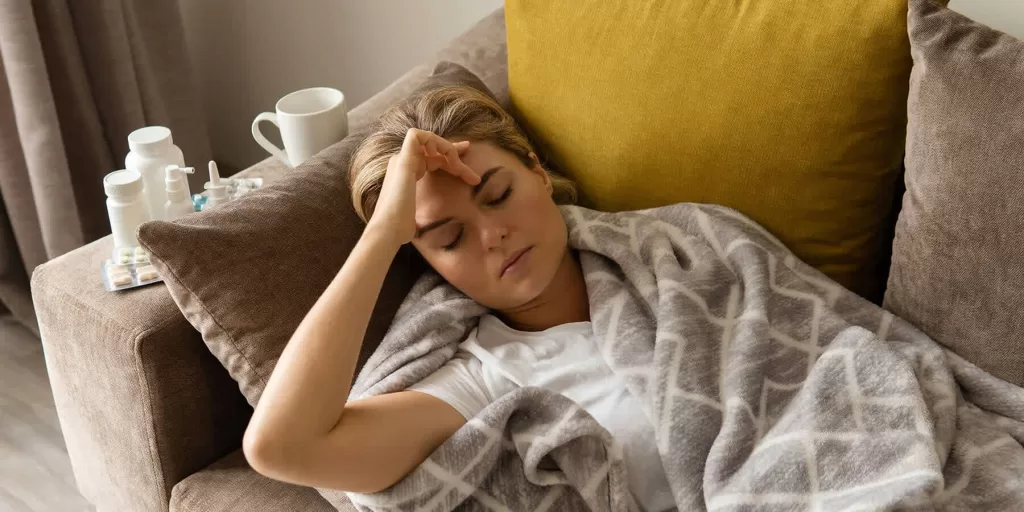Insomnia is a condition where there is a persistent problem for one to fall or stay asleep. This may affect one’s mood, energy level, health, or even work performance. Adults need 6-8 hours of good sleep. Insomnia may be associated with other conditions or maybe the primary factor. It is classified into two:
- Acute insomnia- it may last for a few days to weeks.
- Chronic insomnia- may last for months to more.
Causes of insomnia
- Stress from work, health, finances, and family may make it difficult for one to sleep. Stressful events such as death, divorce, job loss, and illness can also be contributing factors.
- Poor sleep habits e.g. too much-watching TV, uncomfortable sleeping areas, and stimulating activities before sleeping. This may interfere with one’s sleep cycle.
- Eating too much food late in the evening may make it difficult for one to fall asleep due to heartburn.
- Use of some medications e.g. anti depressants that have caffeine and other stimulants in them.
- Mental health disorders e.g. depression.
- Sleep disorder e.g. sleep apnea where one’s sleep is interrupted at night.
- Change of work /travel schedules. Circadian rhythm is the internal clock that guides one on when to sleep and stay awake. Disrupting it may lead to insomnia.
- Use of caffeine, alcohol, or nicotine products. Consumption of these late in the evening makes it difficult to fall asleep.
- Change in sleep pattern. Common with the increase in age. One may tend to sleep early and then wake up early.
- Medical conditions e. g chronic pain, cancer, asthma or gastroesophageal reflux disease, etc.
Symptoms of insomnia
- Ongoing worries about sleep.
- Difficult falling asleep at night.
- Waking up too early.
- Daytime tiredness.
- Depression.
- Increased errors.
- Failure to pay attention to given tasks.
- Waking up during the night.
- One feels tired even after taking a night of sleep.
Risk factors
- Lack of regular schedule e.g. traveling and change of shifts.
- Stress.
- Physical and mental health disorders.
- Increase in age.
- Gender due to shifts in hormones, pregnancy, menstrual cycle, and menopause women experience more insomnia than men.

Complications
- This can lead to mental disorders e.g. anxiety and depression.
- Increase risks of health diseases e.g. heart disease and high blood pressure.
- Lowers one’s performance in daily activities.
- Lowers reactions to events and thus prone to accidents.
Preventions
- Limit naps during the day.
- Keep a schedule that is regular.
- Being active thus promoting a good night’s sleep.
- Limit alcohol and caffeine use.
- Avoid eating too much before bedtime.
- Have a comfortable sleeping area.
- Having a relaxing bedtime ritual e.g. taking a warm bath.
Diagnosis
- Physical exam when the cause is unknown. Blood tests may be done to check for thyroid problems.
- Review sleep habits by filling out a questionnaire to determine sleep and wake patterns.
- Sleep study- where brain waves, breathing, heartbeat, eye, and body movements are monitored in a sleep center.
Treatment of insomnia
- Change of sleep habits.
- Addressing issues associated with insomnia e.g. stress, medical conditions.
- Cognitive behavioral therapy.Helps to control negative thoughts and actions that keep one awake. Strategies under it include:
- Relaxation techniques. Progressive muscle relaxation and breathing exercises reduce anxiety before sleep. These techniques help to control breathing, muscle tension, heart rate, and one’s mood thus being able to relax.
- Sleep restriction therapy decreases the time spent in bed. Also helps to avoid day naps. This helps to improve one’s sleep at night.
- Light therapy – helps people who tend to sleep too early and wake up too early.
- Passively remaining awake. The therapy is aimed at reducing the worry of being able to sleep, by getting in bed and staying awake rather than falling asleep.
- Stimulus control therapy Helps to remove conditions in one’s mind that make one resist sleep e.g. setting a consistent bedtime and avoiding naps.
- Prescription of sleeping pills e.g. ramelteon, zolpidem, zaleplon etc. Not recommended for use for more than a few weeks.
- Best Public High Schools in Kiambu County.
- List of best private primary schools in Kirinyaga County.
- Kenya Institute of special education, courses.
- Bay head elementary school history, enrolment, programs offered.
- What is the history of Kenyatta University?
- Public Universities in Kenya
- List of Best private secondary schools in Nairobi County.